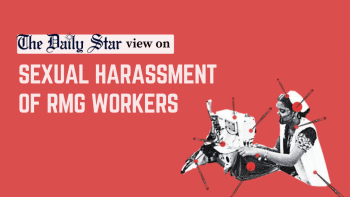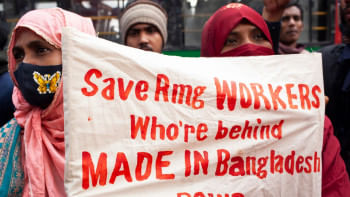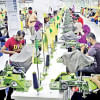Is RMG workers' safety losing due priority?

We are gravely concerned to learn that a significant number of ready-made garment (RMG) factories in the country are operating without any kind of safety inspection mechanism. According to the latest findings of the Centre for Policy Dialogue (CPD), 856 RMG factories out of a total of 3,752 – nearly 23 percent – are operating outside the purview of the safety inspection bodies that are currently active in Bangladesh. After suffering so many casualties caused by workplace negligence in our RMG sector over the years, this revelation not only comes as a shock, but it also raises the question as to whether workers' safety is losing its due priority in this sector.
According to our report, the uninspected factories are exporting apparel products mainly to non-traditional markets – i.e. not to the United States or the European Union, two biggest markets of Bangladeshi RMG products – through subcontracting. We want to know why and how these factories managed to avoid regular inspections, and who will take responsibility if and when a disaster takes place.
We are also alarmed by the finding that the factories that are being inspected are not being monitored properly either. RMG workers' safety – or the shocking lack thereof – in Bangladesh grabbed global attention after the tragic Rana Plaza collapse in 2013. Since then, through a number of initiatives, our RMG sector made remarkable progress in improving workplace safety, but it is evident that it still lacks sufficient monitoring capacity to look after all the factories. Moreover, there are issues with the way the existing monitoring bodies conduct factory inspections. The number of inspections by the Department of Inspection for Factories and Establishments (DIFE) in the RMG sector, for example, decreased by almost 43 percent in FY2022, compared to FY2021, with no clear indication as to why the number declined so steeply. Then there are allegations of lack of coordination between the inspection bodies and other government agencies, lack of reliable data, underreporting of incidents, etc.
This is simply unacceptable. Our RMG sector has grown on the back of its workers, whose blood, sweat and tears have earned us billions of dollars. The least we can do is ensure that their safety is guaranteed through timely and thorough inspections of their factories. Given the recent rise in workplace accidents and deaths in our factories, it is more crucial now than ever that all the shortcomings and inefficiencies are sorted out promptly and efficiently, and the inspection bodies are fully equipped to ensure workplace safety in all our RMG factories.


 For all latest news, follow The Daily Star's Google News channel.
For all latest news, follow The Daily Star's Google News channel. 








Comments